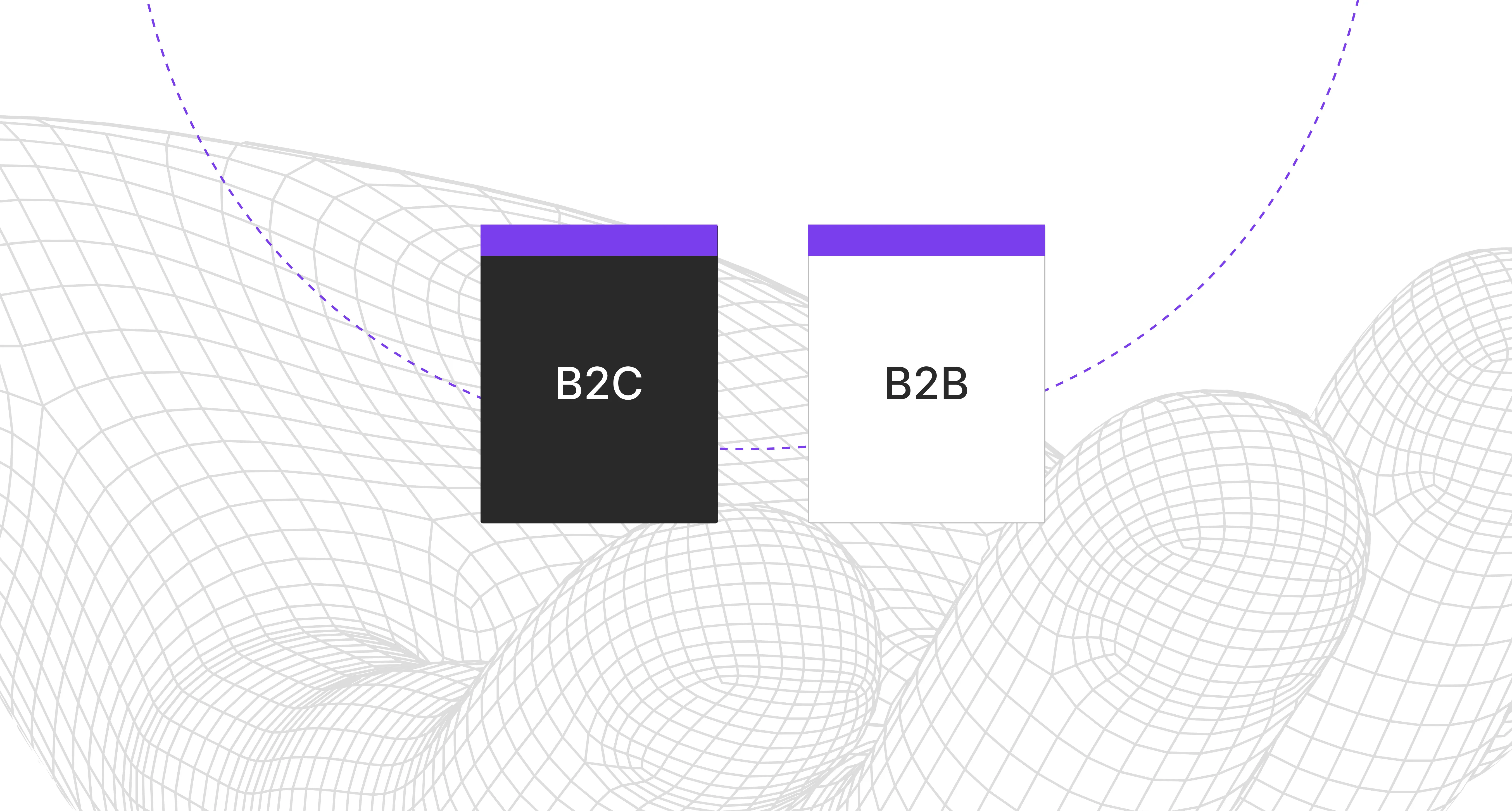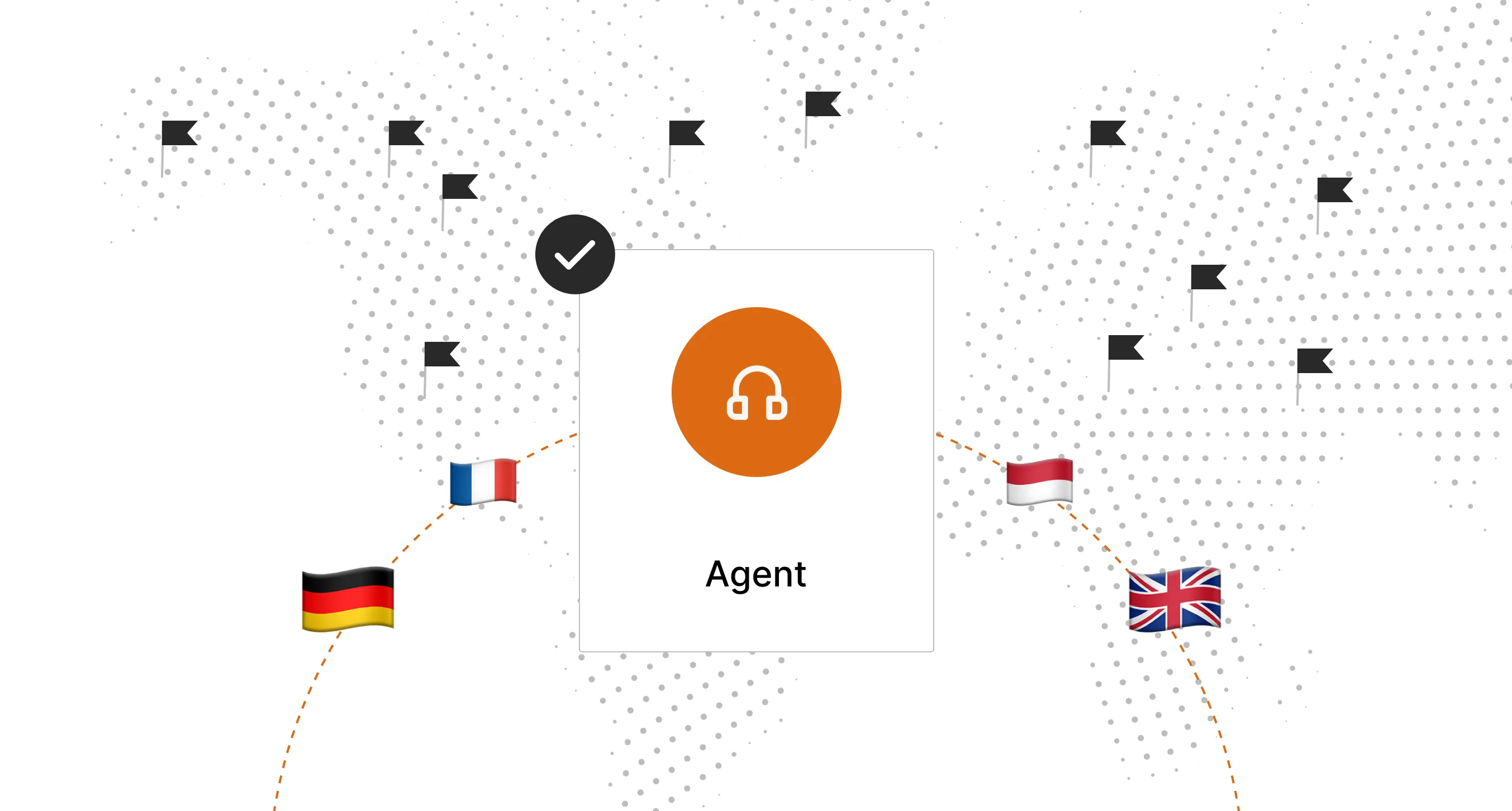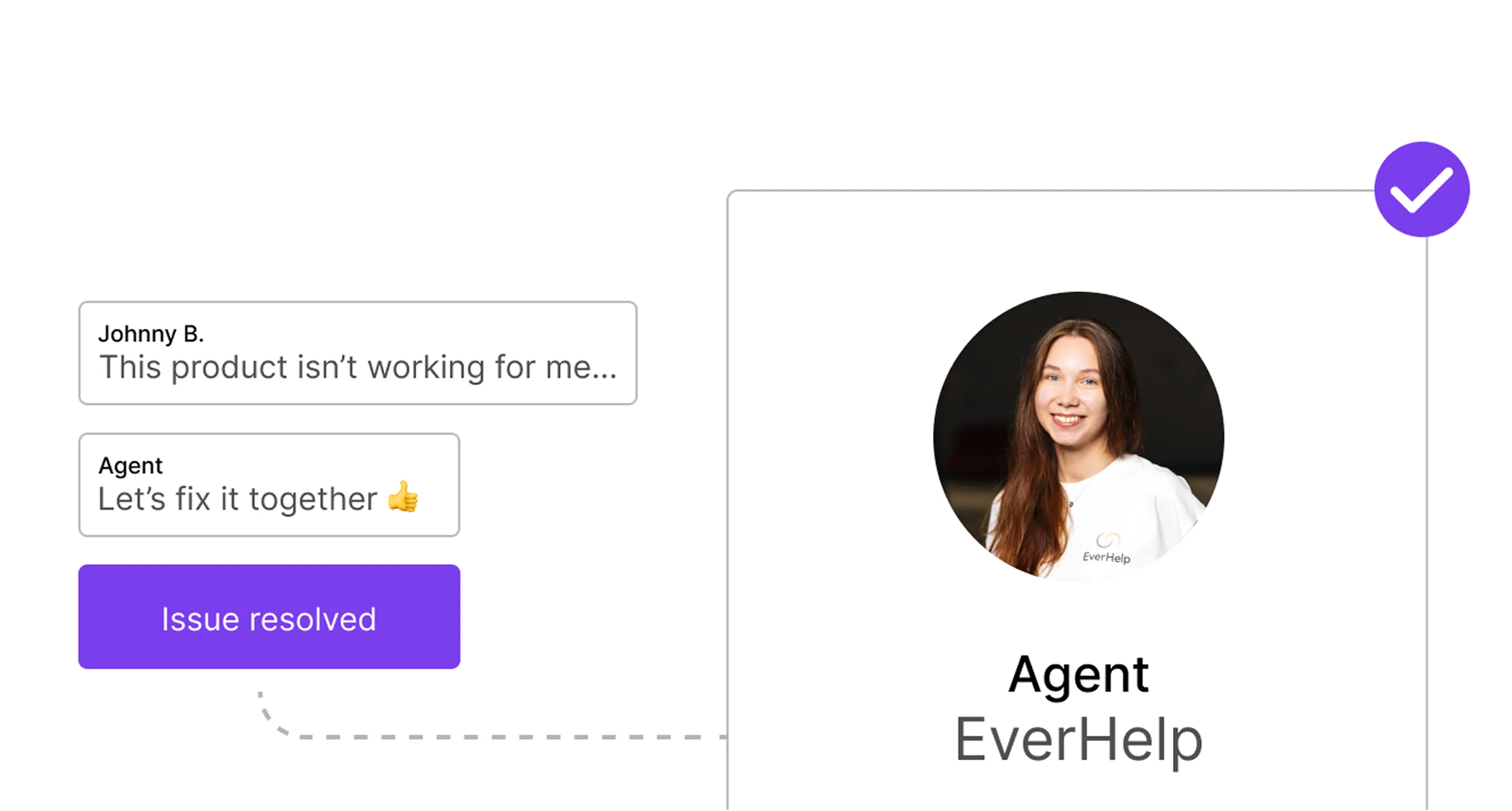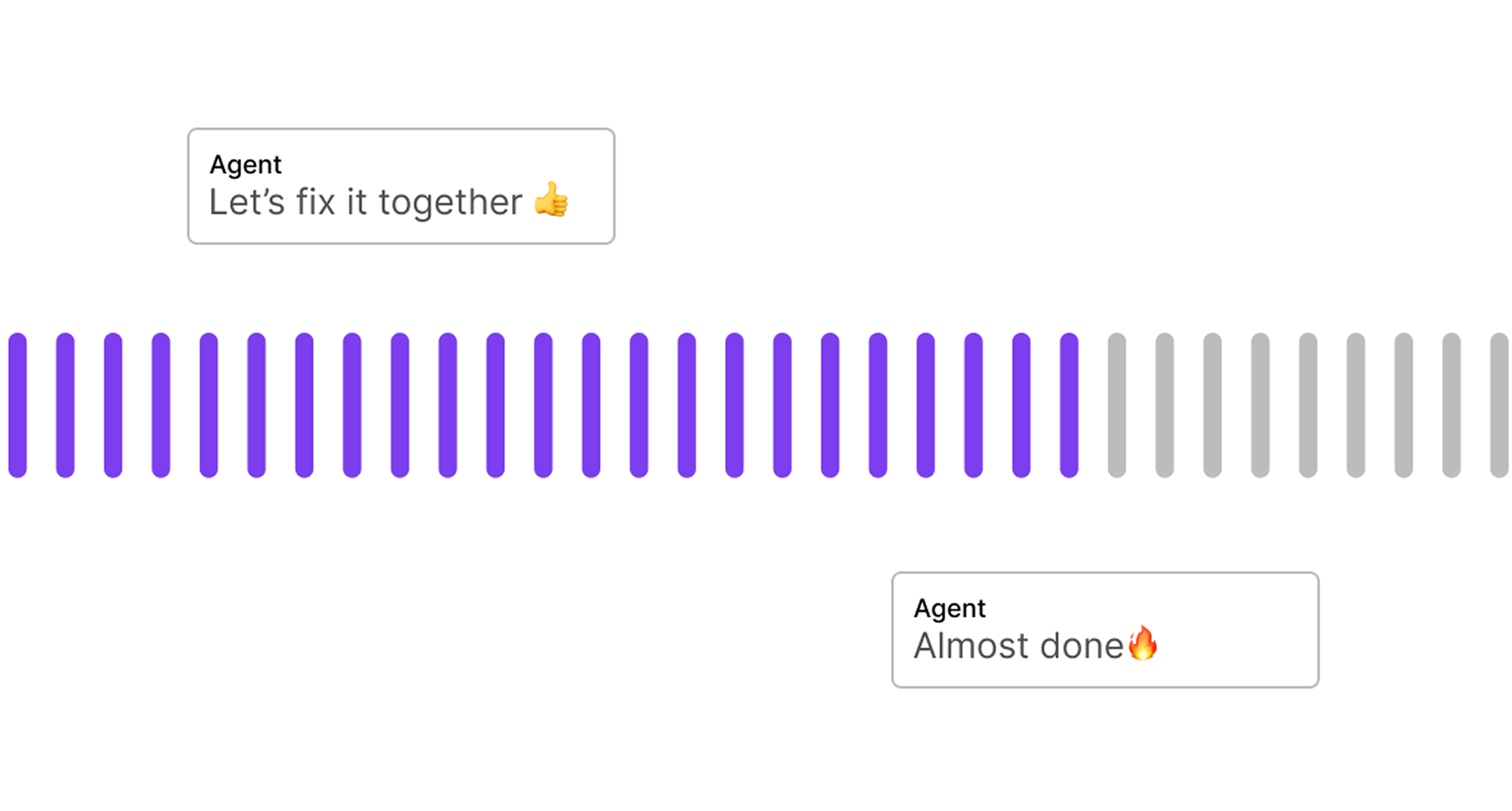A Blueprint to Build an A+ Customer Support Team: Ten-Step Guide

Building a support team isn't as simple as hiring A-players and expecting them to respond to clients. Sure, you can fulfill some customer expectations and meet their needs. However, this strategy rarely works in today's competitive market.
66% of customers have a more favorable view of brands that offer proactive customer service. It means you need much more. An A+ Customer Support Team is the first essential ingredient of customer loyalty.
Let's prove the statement with some eye-popping statistics: Did you know that increased customer retention can result in a 25% increase in profit? Or that 67% of customers are willing to pay more for better customer service?
With immense expertise in customer support, our Ever-Help team is happy to share our insights and tips on building an A+ Customer Support Team from the ground up. Without further ado, let’s move on to the practical tips.
9 Steps Towards an Excellent Customer Support Team
Building a strong support team isn't about hiring "people persons" and hoping for the best. It requires a strategic blend of high-level empathy, technical proficiency, and scalable systems. Whether you are scaling a startup or refining an established department, excellence is a deliberate build. Here are the 9 essential steps to transforming your support department into a world-class customer experience powerhouse:
Step 1: Come Up With Your Definition of “Excellent Customer Support”
Without a larger vision, you can't succeed. Excellent customer assistance means various things in different sectors. For example, it could imply on-time delivery with regular updates for food delivery companies. For a retailer, this could be a flexible return policy or detailed sizing information to assist customers in finding the right fit.
Answer these questions to define a great customer support team for your business:
- What fundamental brand values would serve as a solid foundation for developing a customer service philosophy that complements and reflects your company culture?
- What is a good customer service strategy for your company?
- What are the critical customer expectations that customer support representatives need to meet?
- How many customer reps on a team are required to cover the customer's need for support?
- What are the hard and soft skills every team support member should possess?
If you wonder, “What are the key skills for customer service?” here’s a hint:

Also, at this step, creating a complete support team playbook or guide with your business strategy, goals, and priorities is recommended. It should include all the values you define as required for your brand. Pay strong attention to every point in this guide.
Often, the success of a customer support team lies in going beyond standard rules. For instance, instead of “Being 100% responsive,” it might make sense to write in the playbook “being proactive.” Mention that rather than simply providing support,' the customer support team should collaborate with our customers to maximize their success. And that the team players should ensure that customers have ALL the information they require. You don't want to annoy your customers with unnecessary information. It's about them having the data they're looking for.
Remember, this playbook will be the foundation for the future team's success.
Step 2: Developing Customer Support Team Structure
Every member of your support team would play a slightly different role within the customer support team structure. Depending on the size of your company, your goals, and your budget, your support team might include the following professionals:
- Customer Support Representatives: Customer Support Representatives are the core of your customer support team. The number of customer support representatives needed for your team will depend on the number of clients and requests you are getting. As your business grows, you will need more customer support reps.
- Customer Service Leader: A customer service leader is someone in an organization who consistently demonstrates a customer-focused approach to service. Leaders in customer service lead by example, believing that excellence in serving customers begins with how company leaders act.
- Customer Support Manager: A Customer Support Manager oversees the team's daily activities and works to improve the customer support department's processes and infrastructure. The manager ensures that key performance indicators are fulfilled.
- Quality Analyst: A Quality Assurance Analyst (or QA) ensures that processes are followed within a customer support team and constantly evaluates the tone and effectiveness of call resolutions, email grammar, and best practices on other channels like chat and social media.
- Customer Support Trainer: Customer Support Trainer provides tools for success to reps and conducts in-depth training and role plays with them before contacting consumers. Note: An excellent Customer Support Trainer has previously been a terrific rep. They've done the work and understand the ins and outs of the job.
- Support Engineer: A Support Engineer will be the one who performs deficient, corrective, preventative, and adequate maintenance.

To create a successful customer support team structure, first, determine which system is best for you and your team. Consider which strategies you will need to implement in order to meet your organization's goals and objectives. Conduct research, read articles, and speak with leaders in your network to gain an understanding of what has worked and what has not worked for others.
Building a fully-loaded team requires many resources and talents. As a result, it makes sense to think about outsourcing a support team. In some scenarios, it saves your costs significantly. EverHelp, for example, handles routine tasks and provides excellent customer service while you focus on developing a world-class product.
Simply schedule a meeting with a few clicks, and one of our dedicated customer representatives will reach out to you to discuss your customer support team strategy.
Step 3: Selecting and Hiring Customer Service Agents
Now, it’s time to build your team. Your hiring team can reach out to new recruits online, or you can look internally and see if anyone is due for a promotion. This goes back to knowing who you need to hire.
- Consider whether you need someone who knows your company’s values or you’d rather bring in new ideas from outside representation.
- Consider whether your team needs a customer support team, quality analyst, or customer support trainer. Usually, small businesses start only with only a customer support manager, customer support representatives (of course!), and a customer support engineer.
Create a customer service recruiting plan to predict and eliminate talent gaps, as well as to increase your staff in accordance with company's needs. You should also collaborate with other departments to align your hiring goals with the company's development trajectory.
{{cta-lm}}
Step 4: Onboarding and Training Customer Support Staff
The training and onboarding processes must give your new support reps everything they need to succeed. During the first few weeks of your new hire’s employment, give them resources to understand your company’s goals, the average support process, and troubleshooting options.
The resources might include (but are not limited to):
- Knowledge base
- Blog articles about the product/industry
- Customer support playbook
- Role-play scenarios (so the new sales reps can understand how to react in real-world situations)
- Books on customer support
- Interactive quizzes
- Cross-department meetings
Step 5: Implementing Teamwork Efficiency Tools
Support personnel communicate with consumers, develop self-service material, deliver mass emails, and assist customers in peer-to-peer knowledge-sharing groups.
The correct customer support tools and resources make managing all those obligations simpler and more efficient. With so many options, finding your support stack might require lots of time. Here are some tool suggestions to start with:
- HubSpot Service Hub: Assists customer support teams in developing strong customer relationships, surpassing their expectations, and transforming them into brand promoters.
- LiveAgent: Offers comprehensive help desk services to support staff, enabling effective ticketing, live chat, and social media engagementProvides extensive help desk services to the support staff for effective ticketing, live chat, and social media involvement.
- Help Scout: A scalable and personalized customer care solution that assists the support staff in properly managing consumer questions.
- Zendesk: With its service-first CRM strategy, Zendesk enables service teams to provide rapid, efficient, and meaningful help.
- CloudApp: Improves company communication by providing instantly shareable videos, GIFs, and screenshots, as well as assisting with customer assistance.
- Loom: Provides the support staff with video messages for screen recording and sharing, improving team communication efficiency.
- Slack: Uses channel-based messaging to streamline team communication, maximizing productivity and cooperation within the support team.
- Jira: Provides an advanced project management solution that expands the capabilities of the support team in road mapping, development, and problem tracking.
You might like: Freshdesk vs Zendesk. Who wins?
Step 6: Set KPIs To Measure Progress & Success Smartly
MEASURE THE METRICS ALWAYS. The good news is that, apart from marketing, customer service is perhaps one of the simplest to monitor how things are doing. So, the top core KPIs are often ticket volume, average response time, average resolution time, net promoter score (NPS), and customer satisfaction (CSAT)

Make sure every person on a team has the same target metrics and knows the KPIs. Also, get feedback sessions with the support representatives to know how they feel about the KPIs. You don’t want your team to work under pressure.
Step 7: Ensuring Consistent Feedback and Effective Communication
Feedback and communication must be consistent and transparent to maximize a support team's capabilities. Advanced tips:
- Open Communication: Make it safe for team members to share their thoughts. Innovation and problem-solving improve. Online technologies simplify communication.
- Transparent Feedback: Give your employees frequent, constructive feedback. This should include compliments and suggestions for improvement. Feedback is two-way. Encourage teammates to speak up.
- Regular team meetings: This improves team bonds and allows members to discuss difficulties, exchange experiences, and plan future initiatives.
These methods enhance support team communication. This will create a more cohesive, productive workforce that provides great customer service.
Your ultimate goal should be establishing psychological safety, which is common sense among team members, so that the team is safe for interpersonal risk-taking.
Stay 8: Conducting regular training cadence
Implementing a regular training regimen for the customer support team rather than depending simply on initial kick-off training sessions is critical to a support team's ongoing growth and flexibility. Businesses can guarantee that their personnel is constantly up to speed on the newest trends, tools, and best practices for providing top-tier customer care by keeping continuous training cadences.
So, consider training to be a continuing activity rather than a one-time event at the start of a project. A consistent training schedule encourages continual learning, encouraging employee flexibility and readiness to cope with changing problems.
Step 9: Motivating Support Team Members
Maintaining high levels of service quality and productivity requires keeping your support crew engaged. Here are some practical techniques for doing so:
- Recognize and Reward: Recognizing and praising team members for their contributions may be very motivating. This might be done via verbal acknowledgment, prizes, incentives, or promotions.
- Goals and Progress Monitoring: Set specific, quantifiable objectives and establish tracking and evaluation systems for progress. Seeing their progress might motivate team members to keep growing.
- Provide Independence: Allow team members the latitude and liberty to handle problems independently whenever feasible. This may help them develop their abilities while also increasing their confidence and drive.
- Create Opportunities for Growth: Provide possibilities for professional advancement and learning. This might include more training, seminars, or the chance of advancement.
By applying these motivating tactics, you may create a pleasant work atmosphere in which support team members are engaged, committed, and ready to provide excellent customer service.
Bottom Line: Is Your Business Ready To Thrive?
Building a successful support team will take some effort, but the time and effort you put in will ultimately pay off. If you adopt any of these support team tips we implement at Ever-Help, you can employ the most outstanding individuals, reach and surpass your sales targets, and have a happy, healthy staff.
Finally, the effectiveness of a customer support team is not just dependent on the procedures, training, and technologies in place. A broader view is required, one that recognizes the importance of a good business culture. With a healthy company culture across all departments, you can inspire a support crew that is efficient and productive, satisfied, inspired, and devoted to the business's mission by taking a holistic approach and cultivating an excellent corporate culture.
{{cta}}












.webp)




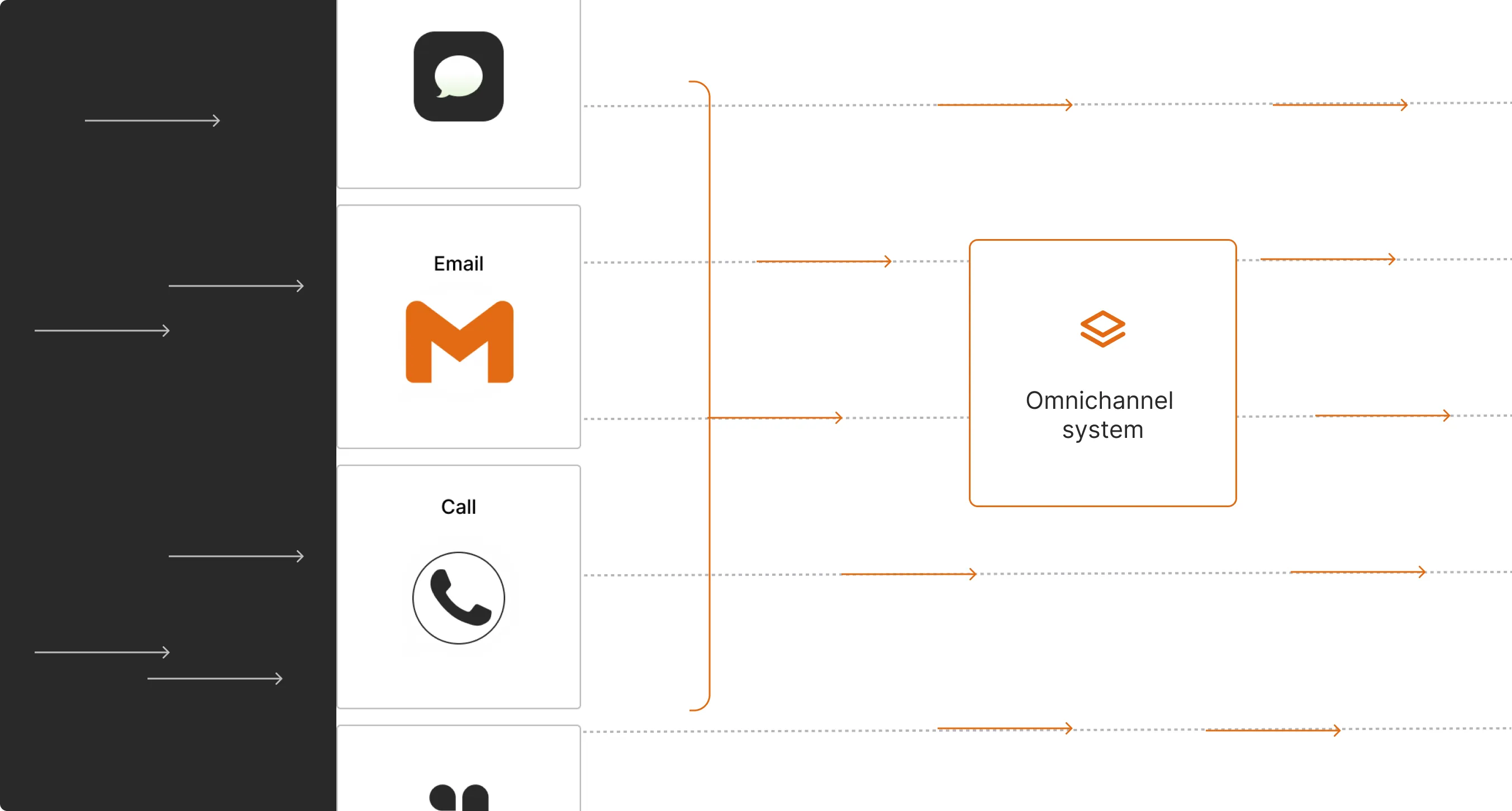





.png)





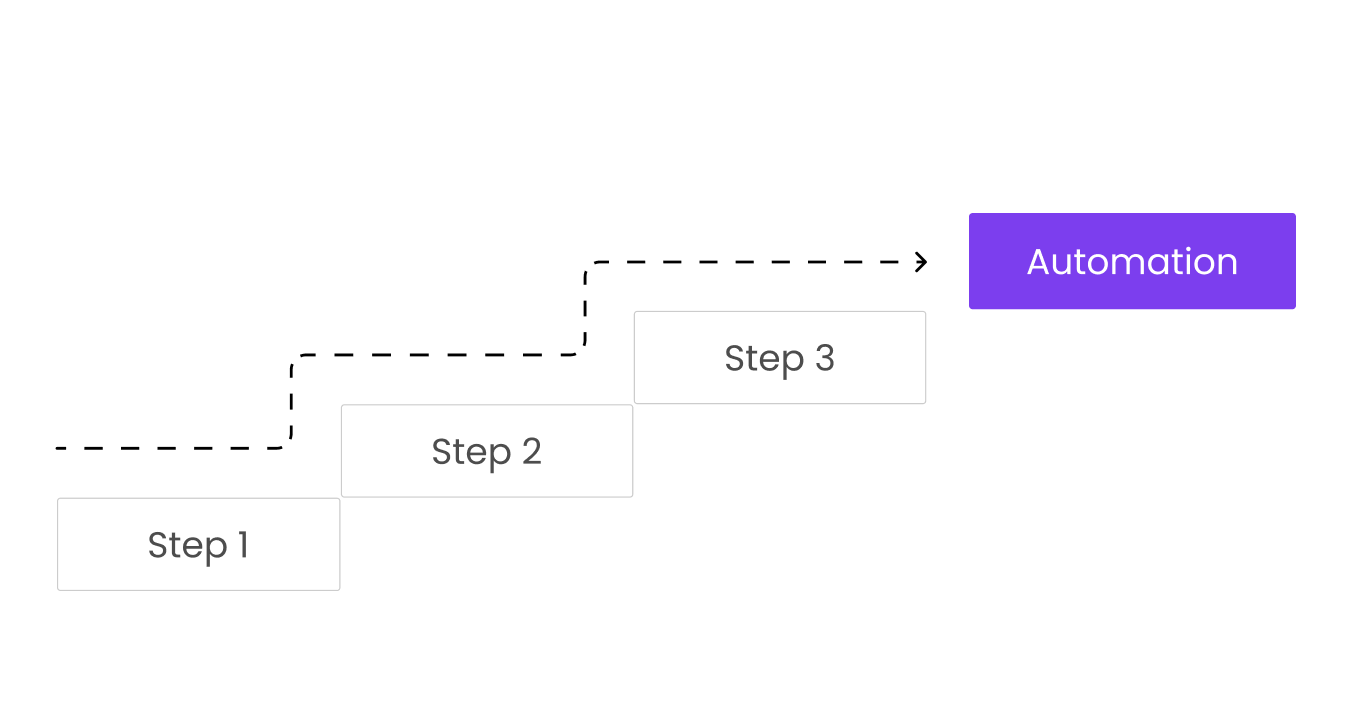


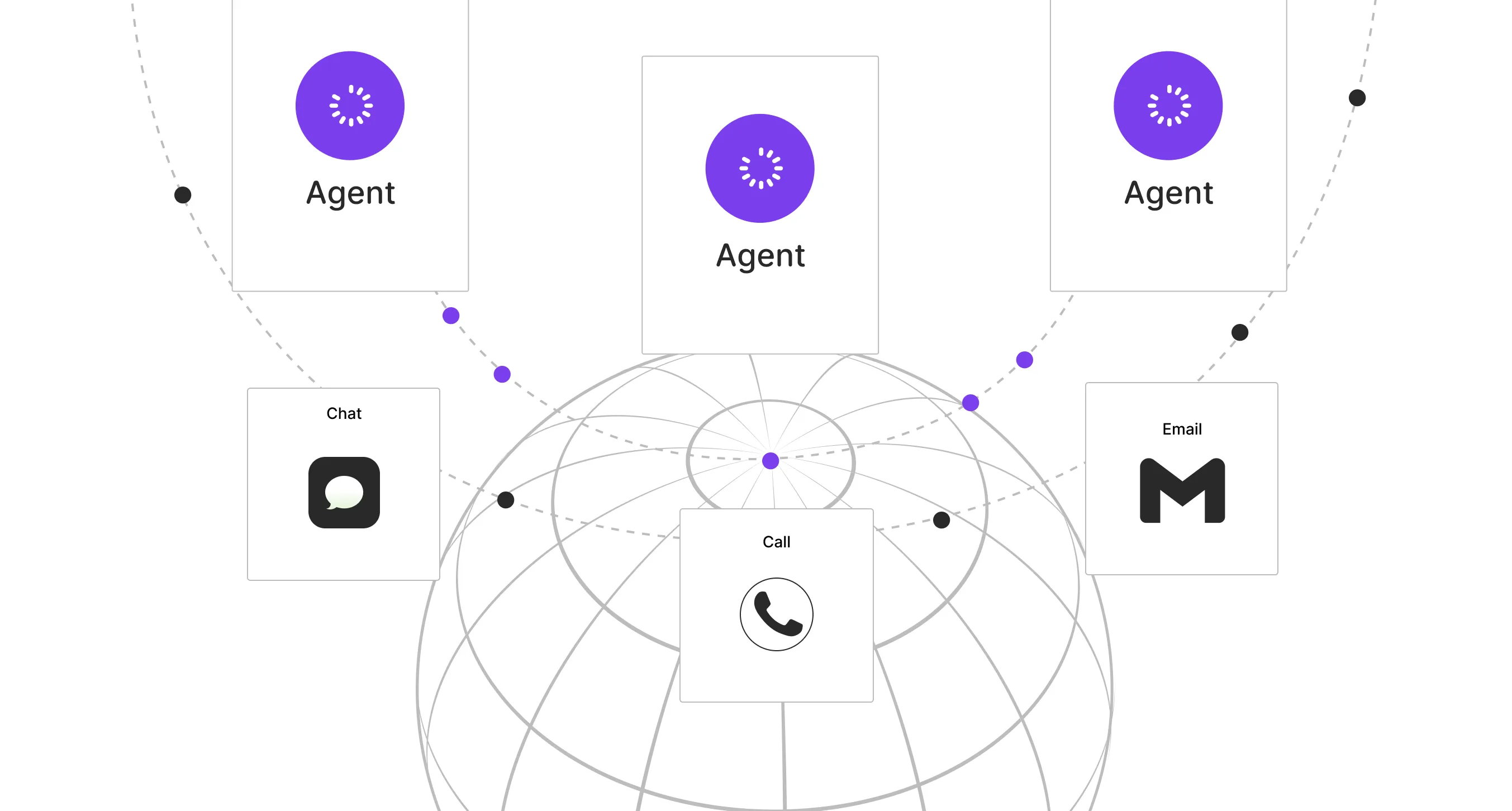
.png)
.webp)

_%20Strategies%2C%20Tools%20%26%20A%20Client%20Success%20Story%20(3).png)
.png)
.png)

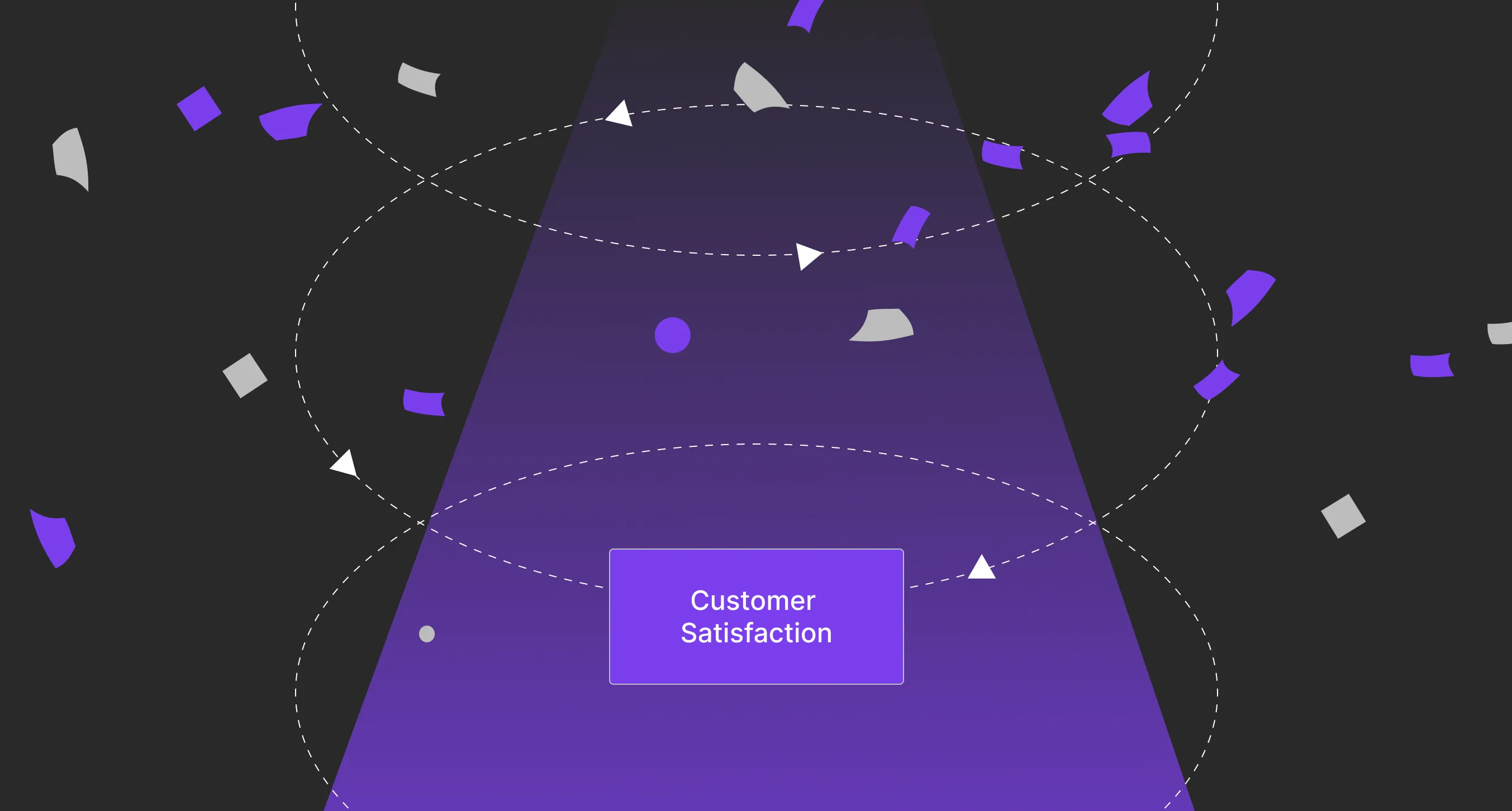
.webp)
.webp)
.webp)
-min%20(1).webp)
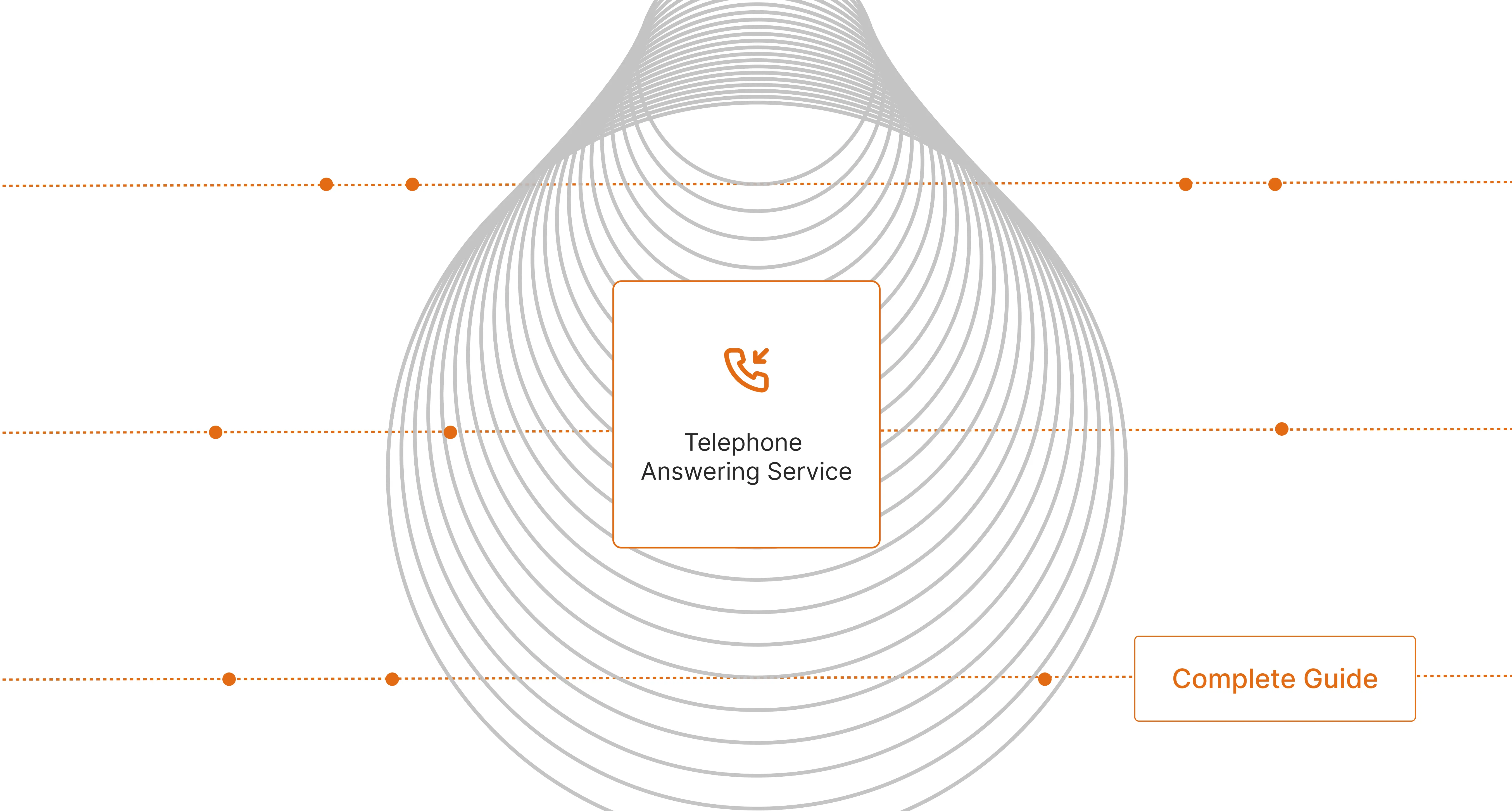



.webp)
